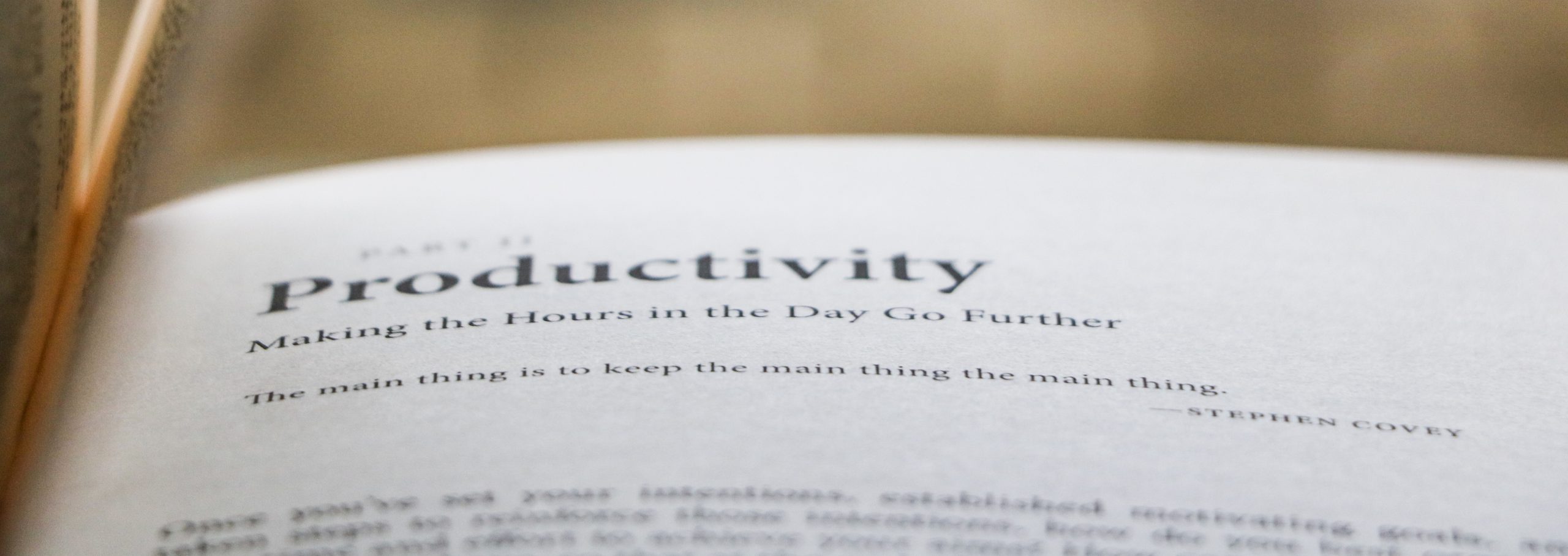Productivity by Nicky Morgan
So here’s an irony. I am writing this blog post on “productivity” at 3.15pm on a Friday afternoon – the week after I got back from a week’s holiday. My productivity levels this week, safe to say, have been a little all over the place.
But with a commitment to share this before COB, I will endeavour to finish the week on a productivity high…
According to a recent study of 7,000 people published in the Harvard Business Review, the 7 skills that are adopted by the top 10% of “super productive” people are:
- Set stretch goals – big projects and end goals help to keep us focused and inspired. The most productive people make stretch goals a habit.
- Show consistency – those who consistently deliver results day after week after month are shown to be more productive than those who procrastinate or pull all nighters.
- Have knowledge and technical expertise – obviously. But the most productive people in the study also asked for help when they themselves didn’t have the required level of knowledge or skill set.
- Drive for results – super productive people love to cross something off the to do list ahead of schedule.
- Anticipate and solve problems – the most productive types will anticipate road-blocks ahead of time for ultimate efficiency.
- Take initiative – the super productive are fast out of the blocks and just.get.going.
- Be collaborative – the study shows the most productive people are also easy to work with and get the best out of others.
It strikes me that many of these “traits” are likely things that we may believe we inherently do or don’t possess. In fact, these are all skills that like a muscle can be honed and exercised. So if you’re looking at ways to up your productivity levels – I’d suggest starting with no. 6, moving swiftly to no. 1 and adopting no. 2 as your new status quo.
And speaking of muscles and exercise. According to another study by DeskTime, it has been found that in office environments, the most productive people work for no more than 52 minutes before getting up and moving – to make a cup of tea, talk to a colleague or just to have a walk around.
At POINT3 we have adopted a ritual whereby we set an alarm for 52 minutes on the days we are mostly tied to our desks. When the alarm goes off we spend at least a couple of minutes stretching, running on the spot or moving about. In fact, the study shows that the most productive people work full-on for 52 minutes and then break for 17 minutes – when they then indulge in some down time or space to allow their minds to wander.
And based on my live productivity experiment (i.e. writing this blog) – I can corroborate these findings. I’m currently an hour in and after 10 minutes I was distracted by a snack via messaging a friend – breaking my flow and my productivity level – not great. 50 minutes of full-on work later and the words are flowing easily. I guess that must make it almost time for a 17 minute break…
I’m back! This simple movement break helps to shift our mental state and bring about a renewed focus when we get back to it.
Case in point – I didn’t know I was going to take a detour with this article – but whilst I was having a stretch and grabbing a drink, my mind wandered to thinking about different states of consciousness. During the working day our minds are often set in “beta” state of consciousness. Beta brain waves are associated with normal waking consciousness and a heightened state of alertness, logic and critical reasoning. It is the mental state I’m currently in now, sat at my computer writing this blog. But on taking a break, my mind moved into the “alpha” state of consciousness. Alpha brain waves are associated with ‘daydreaming’ – the brain is awake but relaxed and open to new ideas that may wander in.
Allowing yourself the potential to oscillate between the alpha and beta brain states will therefore ensure the production of work that is focused and logical whilst also allowing room for inspiration and innovation. All in all – a very productive state to be in.
To end with a quote from Henry Ford:
“Improved productivity means less human sweat not more.”
If you’re looking for pointers on how to increase your productivity – perhaps the answer may lie in actually doing less not more. Be wholehearted with the time you commit to a task and generous with the breaks you allow yourself – giving both your mind and your body the chance to recharge, refocus and serve up fresh ideas.
And when you find yourself hitting no. 4 on the super productive people checklist, take a moment – (as I’m about to do!!) – to give yourself a well earned pat on the back 🙂
